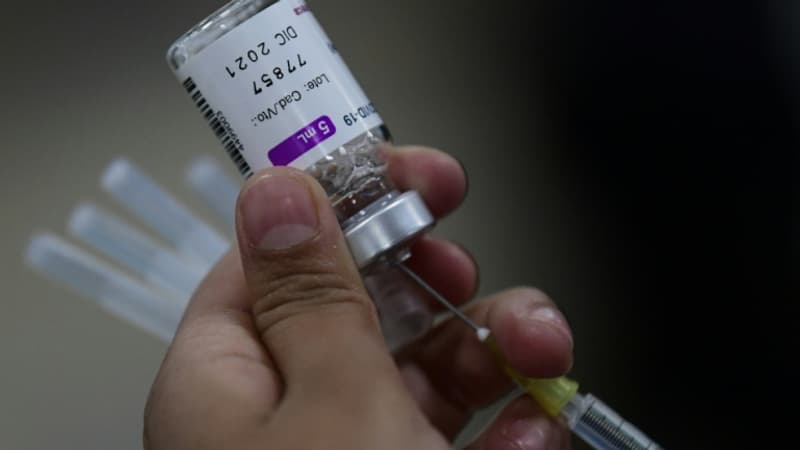Cases of thrombosis are more frequent after AstraZeneca’s anti-Covid vaccine than after Pfizer/BioNTech’s, although they are still very rare, details a study published this Thursday, which confirms a risk already taken into account by health authorities.
“After a first dose (of the AstraZeneca vaccine), there is a 30% increased risk of thrombocytopenia compared to a first dose (of the Pfizer/BioNTech vaccine),” summarizes this large-scale study, published in the British Medical Journal (BMJ).
An increased risk after the first dose
Thrombocytopenia is a form of thrombosis, that is, the formation of a blood clot with life-threatening consequences.
The BMJ study, carried out with health data from millions of patients from several European countries and the United States, confirms that these thromboses are more frequent after the AstraZeneca vaccine, although their frequency is still very low: 862 cases for more than one year. million vaccinated.
The risk appears to increase after the first dose. After the second, there is no difference between the AstraZeneca and Pfizer/BioNTech vaccines.
“All vaccines against Covid are safe and effective”
As for the Johnson & Johnson vaccine, the data points in the direction of increased risk, but not in a clear enough way for researchers to draw a frank conclusion. These risks must “be taken into account in future vaccination campaigns and in the development of future vaccines,” the study concludes.
In fact, vaccines from AstraZeneca and Johnson & Johnson have already been largely abandoned in favor of their messenger RNA counterparts Pfizer/BioNTech and Moderna in European countries. In the United States, AstraZeneca has never been approved.
Above all, the BMJ study confirms “that all (anti-Covid) vaccines are safe and effective,” microbiologist Sarah Pitt, who was not involved in it, told AFP, noting “extremely rare” thrombocytopenia.
Source: BFM TV


